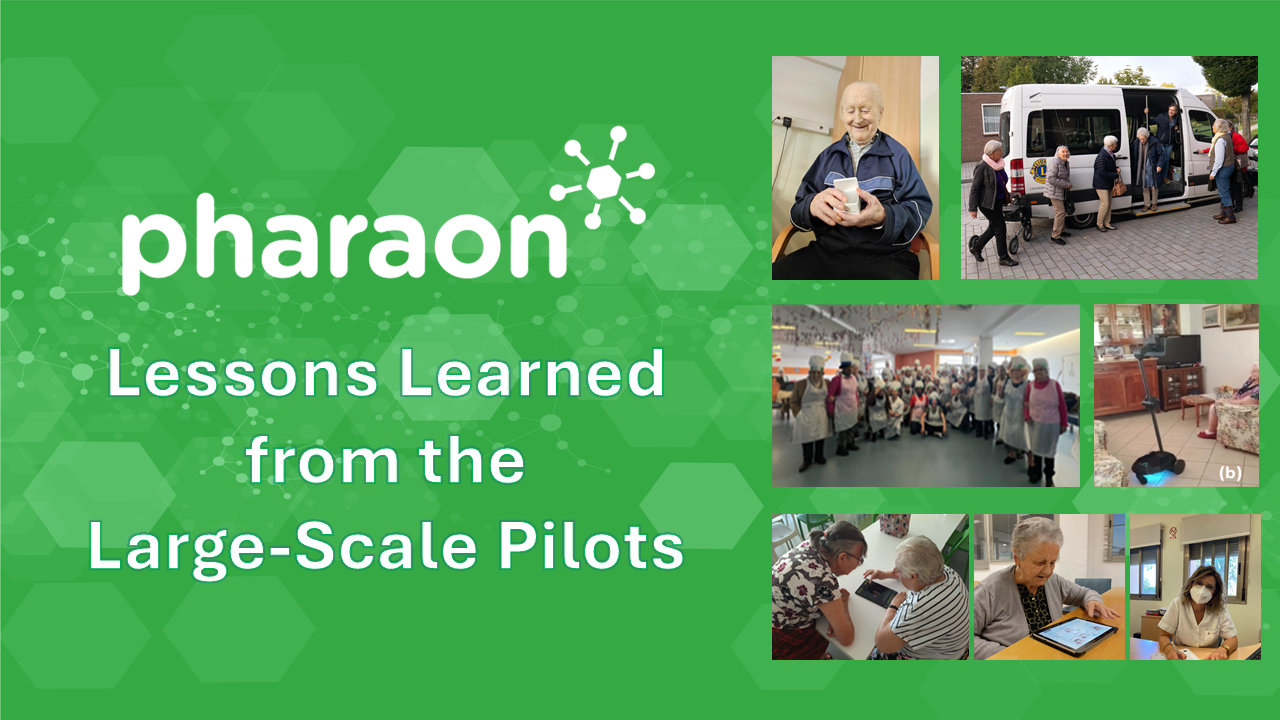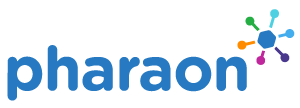
18 Nov Pharaon lessons learned from the large-scale pilots
The Pharaon – Pilots for Healthy and Active Ageing project sought to improve the quality of life for older adults and their caregivers through the integration of innovative digital solutions. Having arrived at the end of the project, we are happy to not only share the results of the pilots (click here for more information on the results) but also some overarching lessons learned across the six pilot sites:
- Complexity of technology: technostress is negatively related to technology use. This warrants simplicity and automation of technology and requires a focus on (digital) training to stimulate successful adoption;
- Personalization of technology: individuals’ needs and wishes are important to stimulate adoption;
- Social interactions: technology can greatly assist in expanding and maintaining social networks to counteract loneliness which is a prevalent problem among older adults;
- Autonomy: it’s important to promote tools that support autonomy when deploying health technology. Moreover, the level of autonomy should be considered to determine the required level of support. This means that deploying technology which focuses on the autonomy of the user requires a careful analysis of the current level of autonomy;
- Social support networks: develop support programs for informal caregivers as well as create social support networks with integrated mental health support and gender-sensitive approaches;
- Interoperability: incorporating new technologies into clinical routines and existing workflows without careful integration limits the acceptability of the new technology.

